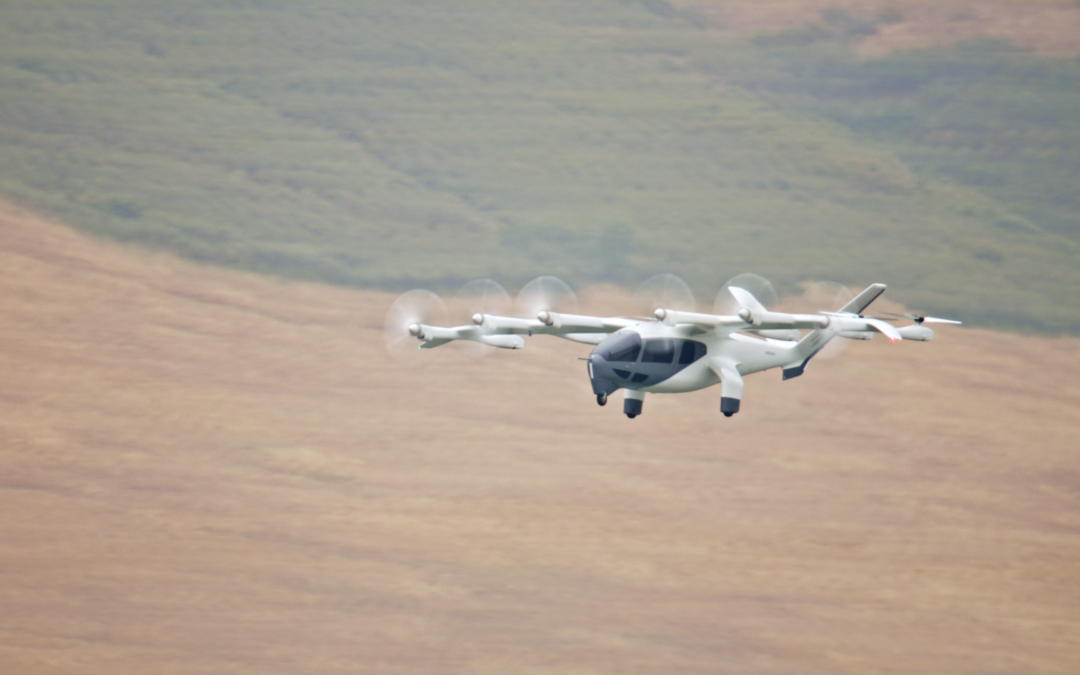FLYING Magazine
Southwest Airlines is set to become the third major U.S. commercial airline to offer air taxi services using an unusual new design.
On Friday, Southwest and Archer Aviation, manufacturer of the Midnight electric vertical takeoff and landing (eVTOL) air taxi, signed a memorandum of understanding (MOU) to develop a network of routes connecting Southwest terminals at California airports.
The airline is the state’s largest air carrier and owns key hubs in Los Angeles, San Diego, Sacramento, and the San Francisco Bay Area, where Archer recently announced plans to construct eVOL infrastructure, such as takeoff and landing vertiports, at five airports.
Archer’s flagship aircraft, which takes off and lands like a helicopter but flies on fixed wings like an airplane, is designed for a pilot to fly as many as four passengers on 20 to 50 sm (17 to 43 nm) air taxi routes, cruising at up to 150 mph (130 knots).
As soon as next year, it will begin ferrying customers to and from airports at a price the manufacturer claims will be cost-competitive with ground-based rideshare services such as Uber or Lyft.
“Integrating Archer’s electric aircraft into the travel journey potentially gives us an innovative opportunity to enhance the experience of flying Southwest,” said Paul Cullen, vice president of real estate for the airline.
Cullen also left the door open for an expansion of Southwest’s air taxi service to locations in other states.
Added Dee Dee Meyers, senior adviser to California Governor Gavin Newson and director of the Governor’s Office of Business and Economic Development: “This initiative is designed to help revolutionize clean transportation with zero-direct emission and affordable options, enhancing the passenger experience, and supporting California’s climate action goals.”
The agreement with Southwest builds on Archer’s existing relationship with United Airlines, which in 2021 agreed to purchase 100 Midnight air taxis for an estimated $1 billion. Under that agreement, Archer will develop a software platform, mobile booking platform, and vertiport integration technology for a commercial service operated by United.
Delta Air Lines, the third major U.S. carrier with plans to launch an air taxi network, is working with Archer competitor Joby Aviation.
In addition, Archer in June signed a deal with Signature Aviation that would give it access to more than 200 FBOs, including those at New York Liberty International Airport (KEWR), Chicago O’Hare International Airport (KORD), and other airports the company intends to serve. The manufacturer also has an agreement with FBO network operator Atlantic Aviation to electrify Atlantic terminals in New York, Los Angeles, Miami, and San Francisco.
“With Archer’s Midnight aircraft, passengers will be able to fly above traffic to get to the airport faster,” said Nikhil Goel, chief commercial officer of Archer. “Southwest customers could someday complete door-to-door trips like Santa Monica [California] to Napa in less than three hours.”
Archer and Southwest will begin by developing a concept of operations for Midnight out of Southwest terminals, partnering with airline employees and union groups such as the Southwest Airlines Pilot Association (SWAPA).
The companies “plan to collaborate over the next few years as eVTOLs take flight,” which does not commit them to a 2025 or 2026 launch. Archer, Joby, and other eVTOL manufacturers such as Beta Technologies and Overair intend to enter commercial service during that time frame.
Adding Southwest as a partner could be key for Archer when considering the activities of its competitor overseas.
Both firms plan to fly in the United Arab Emirates, including the cities of Abu Dhabi and Dubai. In February, however, Joby signed what it describes as an exclusive six-year deal with Dubai’s Road and Transport Authority, giving it the sole right to operate an air taxi service in the emirate. Archer CEO Adam Goldstein has disputed the exclusivity of the agreement, saying it will have no impact on the company’s plans.
That dynamic has not yet played out in the U.S.—both companies plan to fly in New York, for example. But if Joby intends to replicate the strategy of gaining an edge over competitors with exclusive deals, partnerships such as that with Southwest become more important.
Notably, the companies have also butt heads on eVTOL infrastructure. Each is pushing for a different electric aircraft charging system to become the industry standard, similar to how Elon Musk fought for Tesla’s North American Charging Standard to supplant the widely accepted Combined Charging Standard (CCS) for electric ground vehicles (a fight Tesla ultimately would win).
Similarly, Joby wants its Global Electric Aviation Charging System (GEACS) to replace a modified version of the CSS supported by Archer, Beta, and others, which could throw a wrench into their FBO electrification plans.
Among eVTOL manufacturers, Archer and Joby are the closest to being able to fly in the U.S. Each has achieved a full transition flight using a prototype air taxi and expects to begin the critical for-credit phase of FAA certification in the coming months.
In addition, both are qualified to perform eVTOL maintenance and repairs and are in the process of training an initial group of pilots to fly their respective aircraft.
The goal is for those activities to be complete in time for a 2025 launch. Whether Southwest will be a part of that occasion remains to be seen.
Like this story? We think you’ll also like the Future of FLYING newsletter sent every Thursday afternoon. Sign up now.
The post Southwest Strikes Deal With Archer for Electric Air Taxi Service appeared first on FLYING Magazine.

